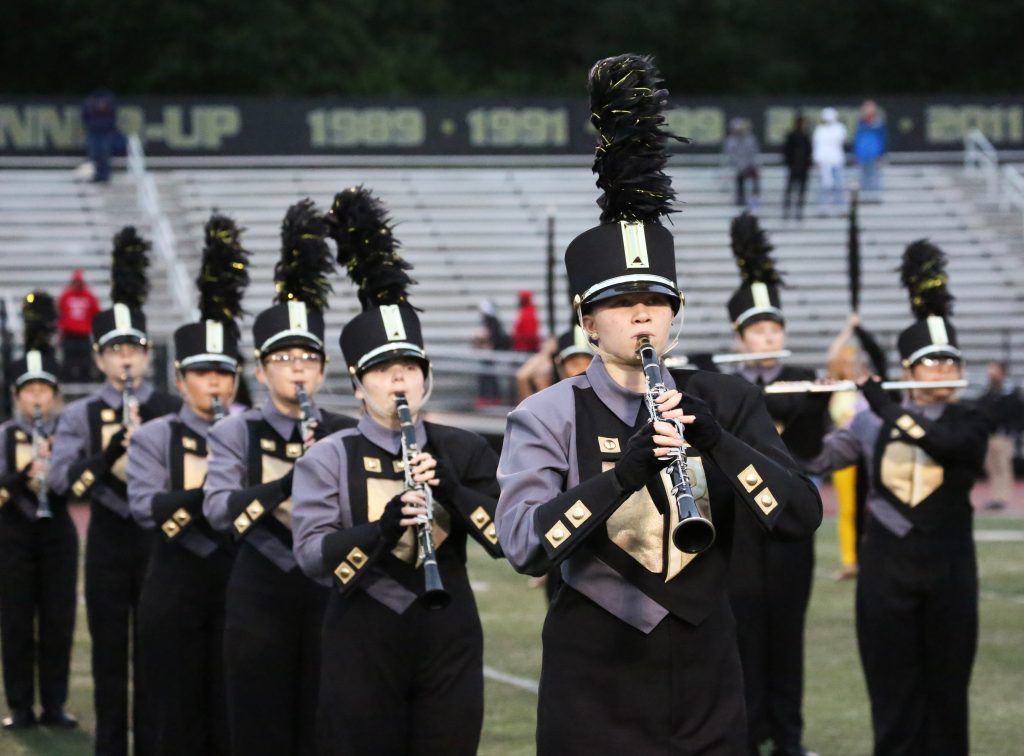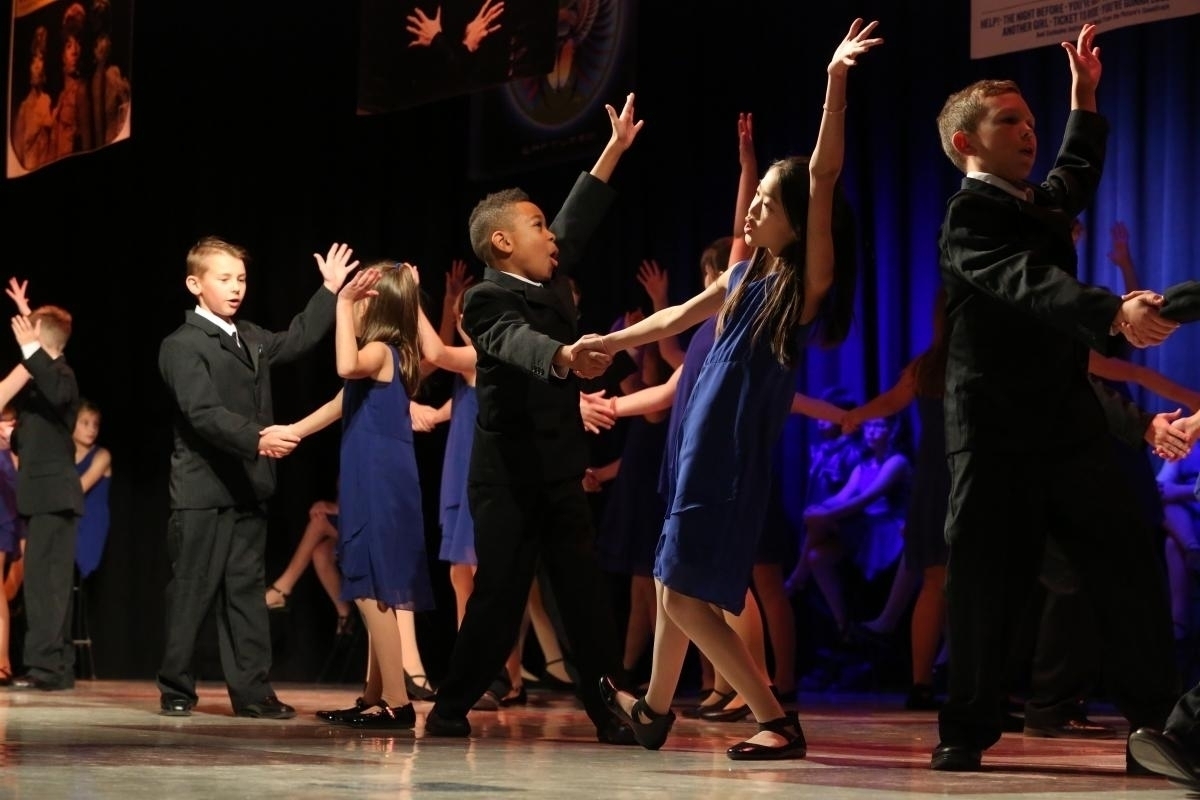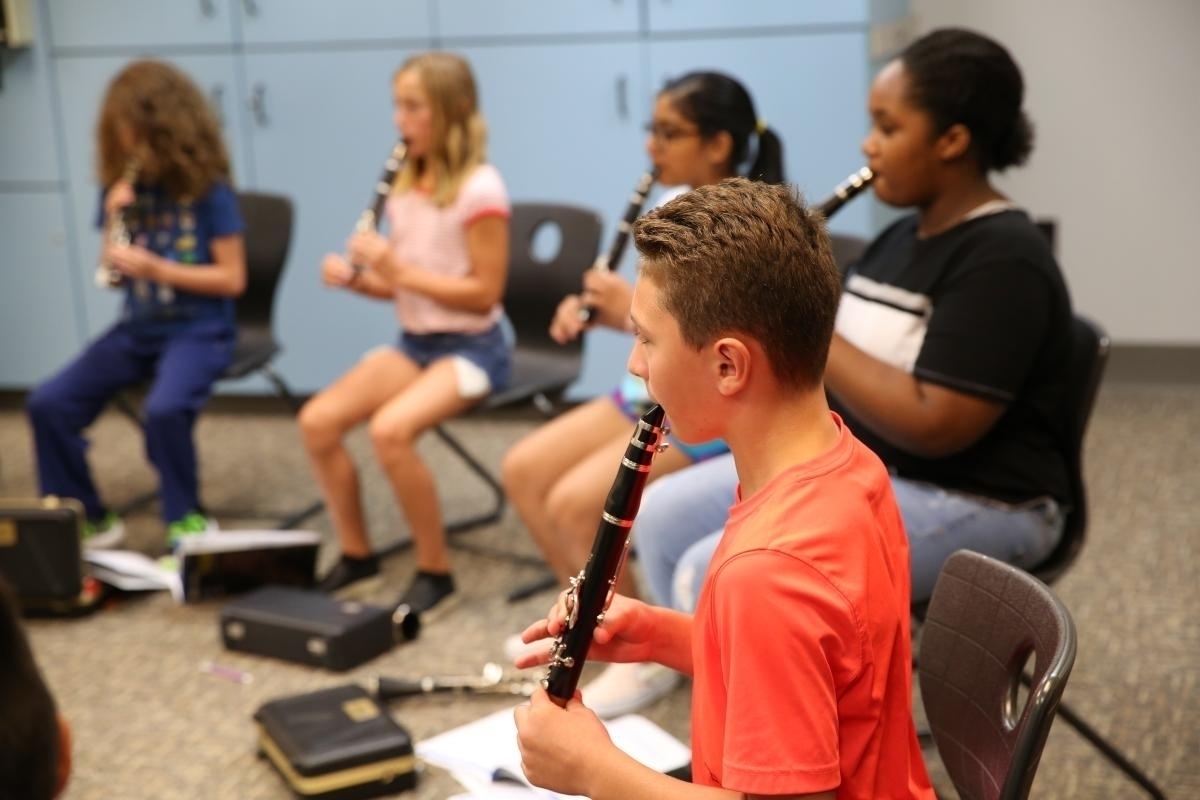
P-H-M Named 2020 Best Community for Music Education
Posted on April 7, 2020With music education programs at all grade levels (K-12), Penn-Harris-Madison has once again been named one of 2020 Best Communities for Music Education for its outstanding commitment to music education! P-H-M is one of only 754 districts nationwide and 16 in Indiana to receive the honor from The NAMM Foundation. This is the 7th year in a row that P-H-M has received this prestigious national designation!
The Best Communities for Music Education designation is awarded to districts that demonstrate outstanding achievement in efforts to provide music access and education to all students. The BCME award acknowledges the commitment of P-H-M’s music teachers and administrators in the District’s 11 elementary, three middle schools and Penn High School.


In our elementary schools, music class is part of the regular curriculum following state standards. Students are instructed in both vocal and instrument classes. Beginning in 6th grade, P-H-M students at our three middle schools (Discovery, Schmucker and Grissom) have the opportunity to choose choir, orchestra or band as their music elective. Students at Discovery also have the option of choosing Piano Lab.
Penn High School offers the Fine Arts & Communication Academy as part of its unique academy structure. The seven academy design provides Penn students with relevant and meaningful coursework taught in smaller, supportive environments where each student is known well by his teacher and peers. Nearly a third of Penn’s total 3,500 students are enrolled in the Fine Arts Academy with the majority being involved with music programs, either Choir, Orchestra, Band or another music program.
To qualify for the Best Communities designation, P-H-M answered detailed questions about funding, graduation requirements, music class participation, instruction time, facilities, support for the music program, and community music-making programs. Responses were verified with school officials and reviewed by The Music Research Institute at the University of Kansas.
Research into music education continues to demonstrate educational/cognitive and social skill benefits for children who make music. In a series of landmark studies by scientists and researchers at Northwestern University a link was found between students in community music programs and life-long academic success, including higher high school graduation rates and college attendance. In another study from the University, it was discovered that the benefits of early exposure to music education improves how the brain processes and assimilates sounds, a trait that lasts well into adulthood.
Beyond the Northwestern research, other studies have indicated that music education lays the foundation for individual excellence in group settings, creative problem solving and flexibility in work situations, as well learning how to give and receive constructive criticism to excel.
Last Modified July 6, 2023
